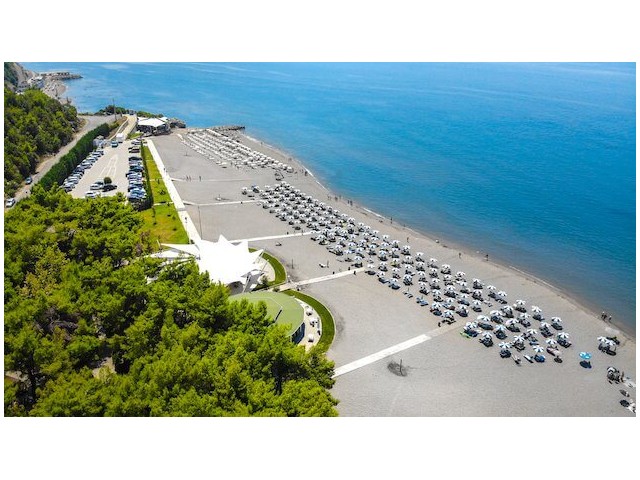The government has recently taken a legislative initiative related to the integrated management of real estate located along the coastline in Albania. This initiative is concretized with the draft law "On Integrated Coastal Zone Management 2020".
The purpose of this law is:
a) Integrated management of the coastal area of the Republic of Albania, to realize the protection and rational use of the territory and the natural values of the coastal area;
b) Ensuring the sustainable development of the coastal area in accordance with the general national plan as well as with the national sectoral plan of tourism, urban needs as well as with the economic and social activities that take place or have an impact on it;
c) Promotion of activities and activities for the protection, administration and increase of the quality of service in the coastal area;
d) Determining the institutions responsible for the administration and management of the coastal area for the benefit of the community and the social and economic interests of the country.
This law applies to the entire coastal area of the Republic of Albania defined in the law in question. It also applies to all those areas, territories and facilities which with their activity fully or partially affect the Albanian coastal area.
The subjects regulated by the draft law are the owners of real estate, private properties and other objects which are located in the coastal area.
According to Article 6, Integrated Coastal Zone Management is considered the process of coordinated implementation of various policies, which have an impact on the coastal zone. These policies include the planning, implementation and control of construction, as well as the harmonized regulation of economic activities that take place or have an impact on the coastal area.
The draft law also defines donors, stating that such are all domestic or foreign individuals, financial and banking institutions, national and international, public or private, domestic and foreign that finance development projects.
According to Article 13, the management of the coastal area will be done by the National Coastal Agency always based on the assessments made by the Maritime Management Committee.
This institution will have competencies regarding:
. Carrying out an inventory of the territory of the coastal area.
. Organizing, promoting and contributing to projects
activities and activities that aim at the protection, administration and increase of the quality of the values of the landscape, natural resources as well as of the natural and cultural heritage in the coastal area of the Republic of Albania.
. Control and observance of legal criteria for the use and administration of beaches, verifying their administration by private / public entities as well as making public beaches available to the public free of charge for users.
The Agency is responsible for renting the coastal areas for carrying out various activities and activities of sports, cultural, etc.
Local government bodies must cooperate with the KBA by following up on all applications for equipment with development permits in order to obtain approval from the KBA. They also have the duty to inform the KBA of the measures and sanctions taken during the control of developments in the coastal territory.
According to Article 22/1, after the entry into force of the law, the issuance of construction permits in coastal areas will be prohibited, except for investments of strategic character and constructions for public infrastructure. For those construction objects that have started before the entry into force of the law, the documentation will be verified and if the latter turns out to have been issued in accordance with the law, the development permit will remain in force until the end of the term.
According to Article 23, in case of sale of a private property, the state has the right to pre-purchase in accordance with the legal criteria set by bylaws. Also, any space that will be considered by law as a space of public interest, will be expropriated in accordance with the law.
So, if certain properties will fall in areas with tourism priority, they will be expropriated in favor of the state. Potential expropriation will be done at the prices provided by the cadastral item of these properties.
The initiators of this draft law envisage a positive effect in terms of foreign and domestic investments in the field of tourism. The increase in these investments is expected to become apparent in the longer term after the adoption of this law, a period in which the effects of adhering to the principles of sustainable development and integrated management will have begun to be identifiable, in terms of planning, impact on the territory, level and intensity of activities, development harmony between sectors, employment, education, etc.
This law is expected to affect the preservation and rehabilitation of cultural and aesthetic values of the natural landscape, reducing the negative effects of unplanned and uncontrolled urbanization, which have denatured the beaches that give Albania originality in the Adriatic and Ionian seas.
Also, the preparation of documents as management plans and regulations, will enable the sustainable development of the coastal area, preservation and rational use of the coastal area territory and natural, environmental, cultural, monumental and tourist values, with priority on sustainable development in accordance with the sea shore.
However, despite the need to have a comprehensive legal framework related to the management of coastal planning, one of the main problems is and remains the establishment of a transparent and fair monetary compensation for owners who own private property, subject to expropriation as a result of implementation by the state in cooperation with donors, of projects aimed at Strategic investments in the field of tourism.



